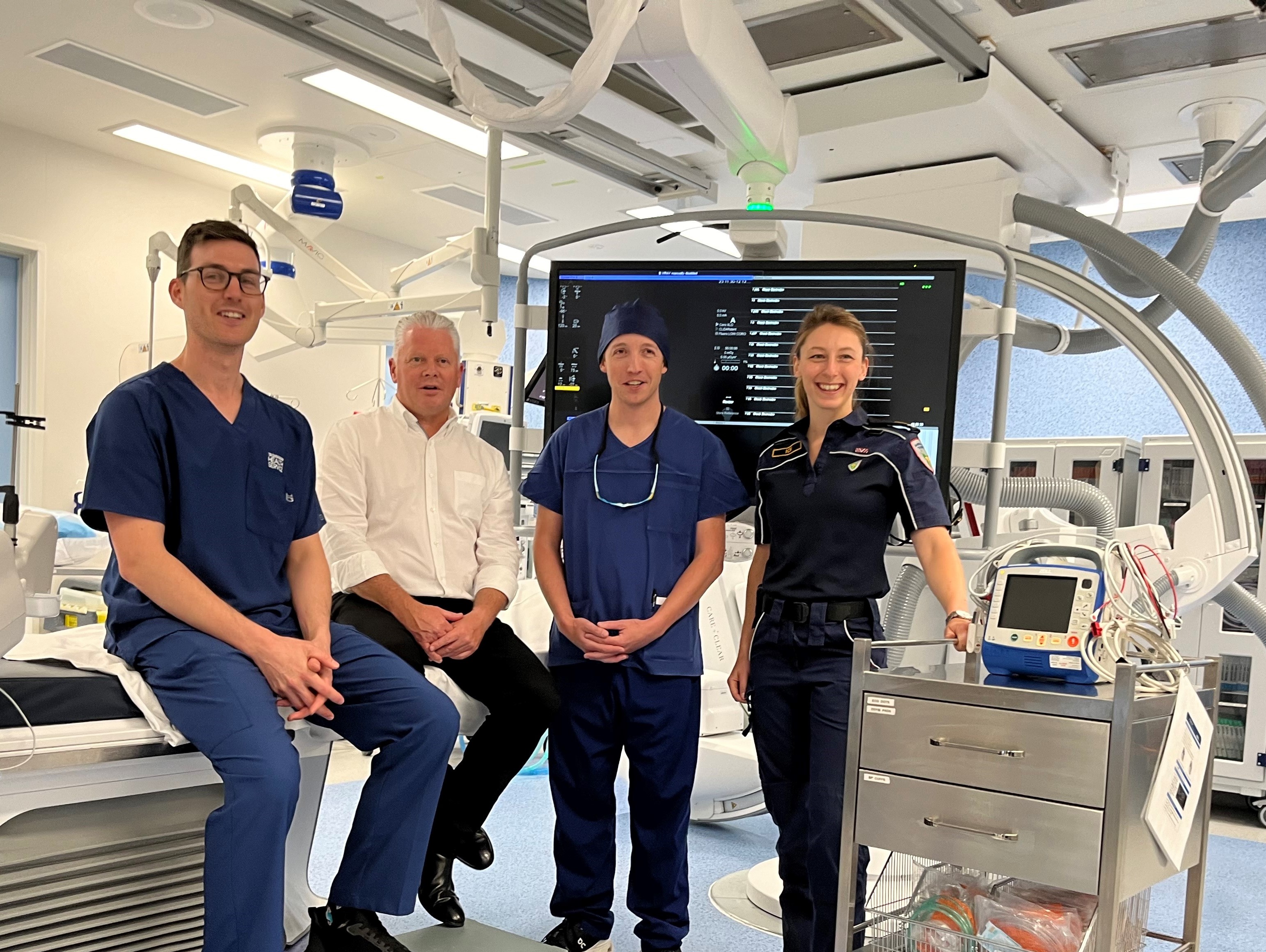A life-saving service that provides emergency care and treatment for heart attacks is delivering nation-leading outcomes for Tasmanians by enabling faster access to vital procedures.
Large heart attacks – also known as STEMI – occur when there is a complete blockage of one of the major coronary arteries that supply blood to the heart muscle, with treatment involving inserting a stent into the artery to restore blood flow.
The STEMI Program – a collaboration between cardiology services, emergency departments (ED), ambulance services and rural GPs – aims to optimise the care for people experiencing large heart attacks across the State by minimising treatment times.
Since being established in 2018, more than 1000 heart attack patients have been treated under the program, with the pathway reducing the time from presentation to treatment in order to improve chances of survival and returning to a normal life.
Recent analysis show the statewide service is delivering high-quality patient outcomes, with key performance indicators ranking amongst the best in the country.
Through the program, paramedics responding to cases in the community are trained to identify STEMI and initiate pre-hospital activation of the catheterisation laboratory with specialist cardiology teams at the Royal Hobart Hospital and Launceston General Hospital. This involves rapidly assembling the life-saving team and equipment, and coordinating direct transfer of patients to bypass the ED and save vital minutes to treatment.
Where transfer to the hospital can’t be achieved quickly – for example, due to geographical distance to these specialist centres – strong clot busting medications called thrombolysis can be administered by paramedics, rural GPs or other clinicians to restore blood flow while the patient is transferred for a stent procedure.
The STEMI program is a fantastic example of how our specialist services located in major population centres are working together with clinicians across the health system to deliver quality outcomes for patients in all parts of the State.
By streamlining and optimising care pathways on a statewide basis, our brilliant doctors, nurses and health professionals are saving lives and supporting long-term recovery by enabling heart attack patients to access the right care sooner.
The risk of STEMI can be significantly reduced by having a healthy diet, not smoking, and importantly knowing your cholesterol and blood pressure, and treating these if they are high. Checking cholesterol and blood pressure involves a simple test that can be arranged with a GP.
STEMI often occurs without prior warning symptoms and are time critical emergencies. If you or someone you know is experiencing a heart attack, call triple zero (000) immediately.

